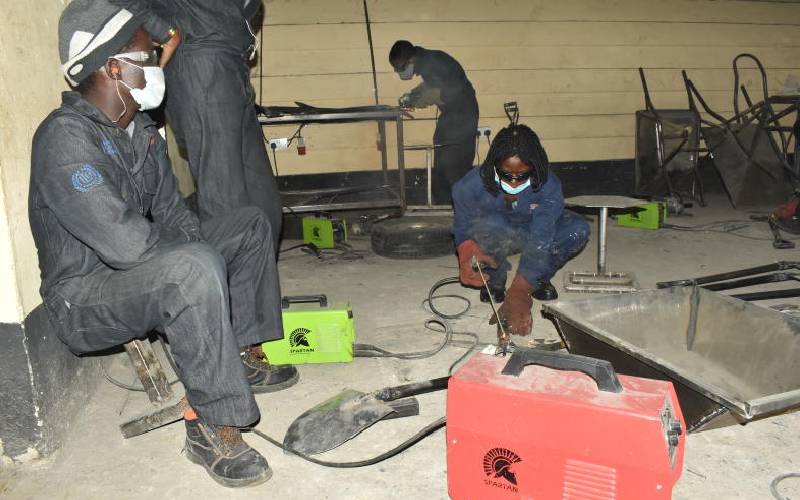×
The Standard e-Paper
Stay Informed, Even Offline

Gear box workers at work at the Avon Centre main Workshop in Industrial area, Nairobi on April 22, 2021. [Samson Wire. Standard].
Entrepreneurship is one of the hottest topics in public discourses and in academia.






